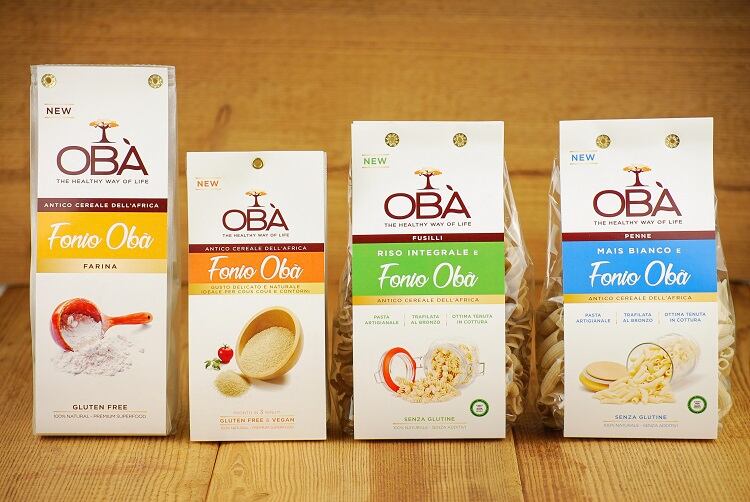Fonio is relatively unknown in the western world, yet has been cultivated and eaten in Africa for over 5,000 years.
The gluten free ancient grain is closely related to millet and sits somewhere between quinoa and couscous in terms of taste and texture. Fonio is rich in protein, and unlike others in the grain category, boasts high levels of essential amino acids.
From an environmental perspective, the crop is relatively drought resistant, and prospers in arid soil with limited irrigation.
However, despite its nutritional benefits and environmental hardiness, Europeans consumers lack access to this grain, according to Italian food manufacturer Obà Food.
Having received Novel Food approval from the European Food Safety Authority (EFSA), Obà is looking to change this. The Rome-headquartered business has developed a pasta made from fonio, which it claims is the first to reach market.
An industry first
“You cannot find fonio pasta elsewhere in the world,” Obà Food founder and CEO Gabriele Fortunato told FoodNavigator. “We are ahead of the curve”.
According to Fortunato, competitors in the space have not yet brought flour to market. “All the rest of the companies are commercialising grain, not even flour,” he confirmed, which Obà mills in its native Italy.

Obà’s product, which is being sold as ‘Fonio Obà Pasta’ (RRP €3.20 for 250g), does not aim to price out consumers. It is ‘pretty competitive’ compared other specialty pastas, said the CEO, citing teff and legume varieties as examples.
Novel Food nod
The product launch comes after the EU approved Obà’s dossier to instate fonio as a Novel Food.
Obà filed the application in February 2018. In July that year, the EFSA announced it raised no safety objectives to placing wholegrain or decorticated grains of fonio on the market.
For Fortunato, the EU Novel Food Approval has helped establish his company’s credibility in Europe, he said.
Fonio listed among 50 foods we should be eating more
Earlier this year, Unilever-owned Knorr and the World Wildlife Fund (WWF) partnered with director of the Center for Public Health Nutrition at the University of Washington, Dr Adam Drewnowski, to list 50 plant-based foods we need to eat more of.
The Future 50 Report listed ancient grain fonio among its ingredients of choice.
“In a world cluttered with advice and pressure around what not to eat, we want to provide people with more food choices to empower change,” noted the report.
“Swapping staples like maize and white rice for fonio or spelt increases the nutrient content of a dish while contributing to greater agrobiodiversity, making our food supply more resilient.”



